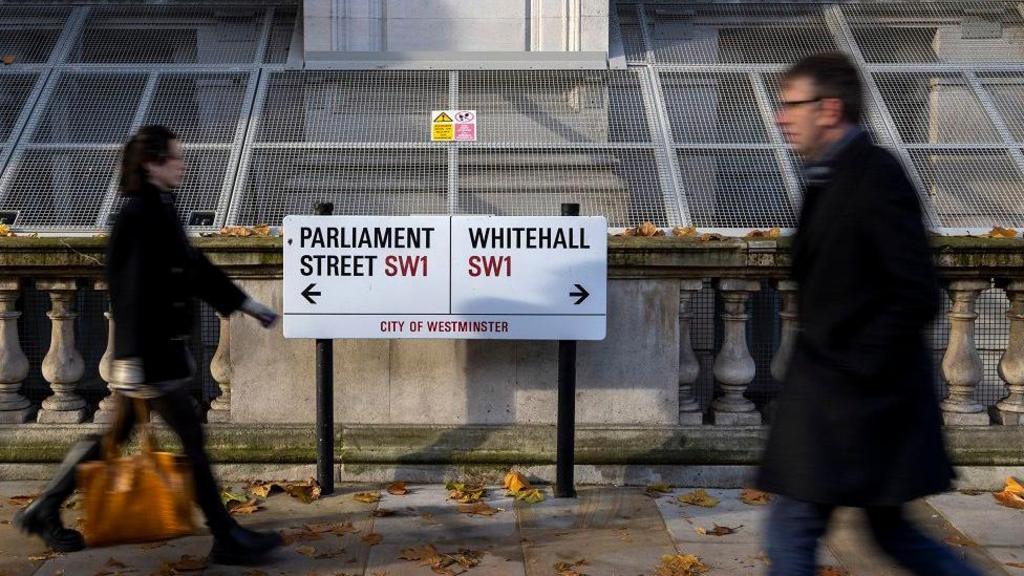The government is set to restrict civil service internships to students from lower-income families, a move designed to diversify Whitehall’s workforce.
The flagship internship program aimed at attracting university students to the civil service will now prioritize applicants from “lower socio-economic backgrounds,” assessed based on their parents’ occupations when they were 14.
Successful interns will then receive preferential consideration for entry into the Fast Stream, the primary graduate program for civil service recruitment.
Conservative MP Kemi Badenoch has criticized the initiative, stating, “Under my leadership, a Conservative government would scrap all this rubbish and hire the best people.”
The reform is being spearheaded by Pat McFadden, the Chancellor of the Duchy of Lancaster, who is responsible for civil service reform.
Speaking to the BBC, McFadden said, “We need to get more working class young people into the civil service so it harnesses the broadest range of talent and truly reflects the country.”
“Government makes better decisions when it represents and understands the people we serve,” he added.
Currently, approximately one-quarter of higher education students come from lower socio-economic backgrounds, yet they accounted for only 12% of successful Fast Stream applicants in 2024.
Some Labour ministers have expressed concerns that parts of the civil service are overly homogenous, dominated by individuals from similar privileged backgrounds.
An existing summer internship program for undergraduates in their final two years of university offers paid placements lasting six to eight weeks, with a weekly salary of £430.
Under the revised scheme, which will begin accepting applications in October, with the first cohort commencing in summer 2026, participation will be limited to students from less affluent backgrounds.
The program will provide approximately 200 undergraduates with practical experience in civil service roles, including event planning, drafting briefings for ministers, shadowing senior civil servants, and conducting policy research.
High-performing interns will be fast-tracked to the final stages of the Fast Stream selection process, should they choose to apply for civil service positions after graduation.
According to a 2024 YouGov survey, 56% of Britons identify as working class, 36% as middle class, and less than 1% as upper class.
The Social Mobility Commission, an independent advisory body to the government, considers parental occupation the most reliable indicator of an individual’s social class.
The commission categorizes occupations into various groups, including:
The government is also seeking to expand career pathways into senior civil service roles outside of London. Earlier this year, it announced that by 2030, half of the Fast Stream placements would be located outside the capital.
Since taking office in July of last year, the Labour government has been openly critical of certain civil service practices. In December, Sir Keir Starmer stated that “too many people in Whitehall are comfortable in the tepid bath of managed decline,” drawing criticism from civil service unions.
The Prime Minister has also expressed his intention to “rewire” the way the state operates.
Conservative Shadow Cabinet Office Minister Mike Wood asserted that the UK’s public services “deserve talent chosen on ability.”
In a statement, Wood said: “We believe in opportunity based on what you can do, not where you come from.”
“We all want to see greater opportunity for working-class young people. But this scheme sends the message that unless you fit a particular social profile, you’re no longer welcome.”
“No young person should be told they’re not welcome based solely on leftist social engineering,” he added.
Dave Penman, general secretary of the FDA union representing senior civil servants, welcomed the initiative, noting that “the Social Mobility Commission found that only 18% of senior civil servants are from working-class backgrounds.”
However, he cautioned that “for people from disadvantaged backgrounds, even if you do manage to get into the civil service, you will not always get on,” emphasizing the need for support to help working-class individuals advance to senior roles.
Sarah Atkinson, head of the Social Mobility Foundation charity, stated: “We’re delighted by the government’s decision to ringfence internship opportunities for students from lower-income backgrounds.”
“While some organisations have already taken steps in this direction, it’s encouraging to see the government leading by example,” she concluded.
Sign up for our Politics Essential newsletter to keep up with the inner workings of Westminster and beyond.
Mark Browne held the role of permanent secretary for a number of years, including a period when the executive had collapsed.
Calum Scott wants to see more opportunities for working class artists in places like his home city.
Simon Case says ministers “weren’t good enough at communicating” in the early days of the Labour government.
The PCS union say around 128 people risk losing their jobs if the Lincoln City Hall centre is shut.
Mum-of-two Jane Eastwood quit her job after suffering postnatal anxiety twice in five years.

